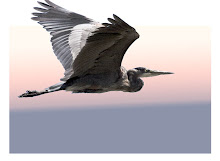
What the Living Do
“No man would listen to you talk if he didn't know it was his turn next.” ~Edgar Watson Howe
“Years ago, I tried to top everybody, but I don't anymore, I realized it was killing conversation. When you're always trying for a topper you aren't really listening. It ruins communication.” ~Groucho Marx
“The first duty of love is to listen.” ~Paul Tillich
“You cannot truly listen to anyone and do anything else at the same time." ~M. Scott Peck
“The greatest compliment that was ever paid me was when one asked me what I thought, and attended to my answer." ~Henry David Thoreau
...And there was a wonderful moment when I actually went and asked for some help from a Jewish scholar at a college...And he explained to me...the revolutionary idea that religion was not about believing things (emphasis mine). He was telling me the story of Rabbi Hillel, the older contemporary of Jesus who'd been approached by a bunch of pagans who said they would convert to Judaism if Hillel could recite the entire Torah while he stood on one leg. And Hillel stood on one leg and said, "Do not do unto others what you would not have done unto you. That is the Torah, the rest is commentary. Go and learn it."
And I said, "Well, that's all very nice, but, I mean, what were these Gentiles supposed to believe?" And Chaim said, "Well, it's easy to see you were brought up Christian." He said, "We Jews, we — it really doesn't matter what you believe, religion is about doing things. It's about, say, living, as Hillel says, in a compassionate way that changes you.
~Karen Armstrong, interviewed by Krista Tippet

“The Buddha believed that a selfless life would introduce men and women to Nibbana. Monotheists would say that it would bring them into the presence of God. But the Buddha found the notion of a personalized deity too limiting, because it suggested that the supreme Truth was only another being. Nibbana was neither a personality nor a place like Heaven. The Buddha always denied the existence of any absolute principle or Supreme Being, since this could be another thing to cling to, another fetter and impediment to enlightenment.
“Like the doctrine of the Self, the notion of God can also be used to prop up and inflate the ego. The most sensitive monotheists in Judaism, Christianity and Islam would all be aware of this danger and would speak of God in ways that are reminiscent of the Buddha’s reticence about Nibbana. They would also insist that God was not another being, that our notion of “existence” was so limited that it was more accurate to say that God did not exist and that “he” was Nothing.
“But on a more popular level, it is certainly true that “God” is often reduced to an idol created in the image and likeness of “his” worshipers. If we imagine God to be a being like ourselves writ large, with likes and dislikes similar to our own, it is all too easy to make “him” endorse some of our most uncharitable, selfish and even lethal hopes, fears and prejudices. This limited God has thus contributed to some of the worst religious atrocities in history.
“The Buddha would have described belief in a deity who gives a seal of sacred approval to our own selves as “unskillful”: it could only embed the believer in the damaging and dangerous egotism that he or she was supposed to transcend. Enlightenment demands that we reject any such false prop. It seems that a “direct” yogic understanding of anatta ('no self') was one of the chief ways in which the early Buddhists experienced Nibbana. And, indeed, the Axial Age faiths all insist in one way or another that we will only fulfill ourselves if we practice total self-abandonment. To go into religion to “get” something, such as a comfortable retirement in the afterlife, is to miss the point.

“Each day, we’re given many opportunities to open up or shut down. The most precious opportunity presents itself when we come to the place where we think we can’t handle whatever is happening.” ~Pema Chodron

